New political phase in Morocco
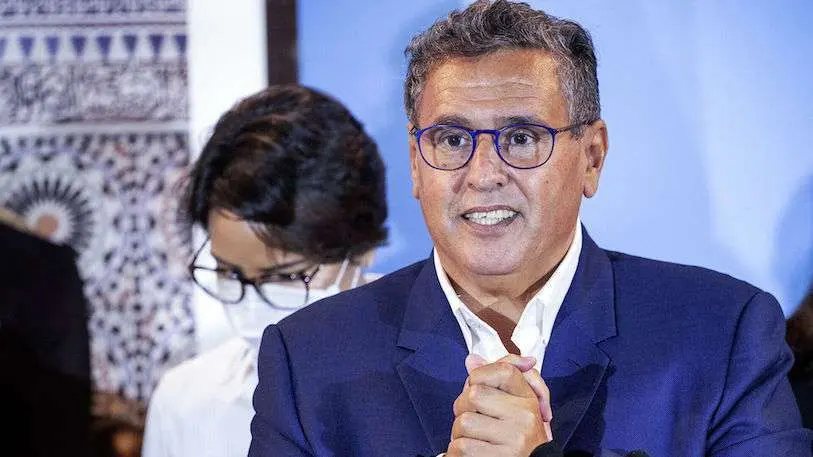
The triple election in which Moroccan voters had to choose a new Parliament, local and regional councils has resulted in a resounding earthquake in national politics. The electoral collapse of the Justice and Development Party (PJD), a party that had presided over the government for ten years and won three elections in a row by a landslide (2011 legislative elections, 2015 local and regional elections, and 2016 legislative elections). The PJD has gone from 125 MPs in 2016 to only 13, an unprecedented drop in Moroccan political history.
Some pundits, political scientists and journalists predicted that the PJD could fall back to second or third place, or even drop to fourth, but no one predicted the possibility of the PJD dropping to eighth place, losing 112 MPs. Al-Othmani's party has not even been able to have its own parliamentary group, which means it will become irrelevant in the next parliament. Why such a setback? The reasons are varied but can be summarised in four main reasons.
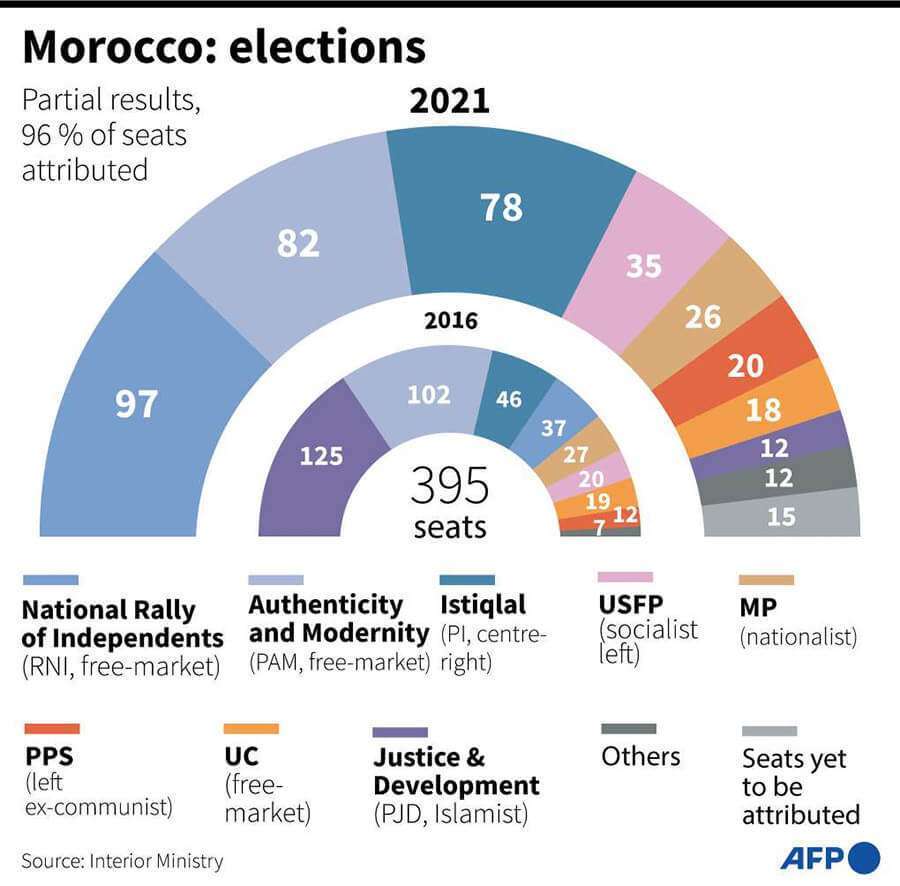
The first: the poor record of ten years of PJD government, and especially the failed government headed by Al-Othmani. Five years of government in which, beyond a few limited social policies, there is hardly any tangible success for the citizens. Some examples of the failure of the PJD's management are the public health system, a health system that does not work, does not have enough resources or personnel. Moroccans, especially the upper and middle classes, are forced to turn to expensive private healthcare for treatment, while the lower classes have no choice but to seek treatment in public hospitals, where poor facilities, lack of equipment and staff, and corruption are combined. The RAMED (French acronym) system, a Royal initiative launched in 2012 by Benkirane's government, which provided free healthcare, including surgery, to low-income families, has been a disaster. Many poor families have been unable to access it because of the bureaucracy endemic in the country.
The endemic high unemployment in the country has not been reversed in the ten years of the PJD government; every year thousands of young people, including graduates, swell the unemployment rolls with no prospect of a better future. Emigration has not stopped, thousands of young people continue to leave the country for Europe, risking their lives at sea. The PJD governments have been unable to come up with any credible programme to lower or at least mitigate the high unemployment rates among the active population, especially young people, the majority segment of the Moroccan population.

Education, an issue of concern to Moroccan society as a whole, and one on which families spend large sums of money to educate their children, has not improved during the decade of PJD rule either. The two PJD governments have approved some measures that have been widely discussed and contested by the education community. The most controversial measure has been to establish a new method of hiring teachers in primary and secondary education based on temporary employment contracts, with the renewal of these contracts requiring a favourable report from the headmaster or headmistress of each public school. This measure, approved by the Benkirane government and supported by the Al-Othmani government, led to protests and strikes by teachers, which were harshly repressed by the police. Deplorable assaults by the police on teachers have been seen on social networks. Images that have hurt people's hearts.
The second: renunciation of the party's ideological pillars. This author had already written an article for Atalayar entitled: "The PJD towards the abyss" in which he explained the reasons for the serious internal crisis the PJD was experiencing. Al-Othmani advocated understanding with the heterogeneous government coalition of six political parties and loyalty to the Monarchy. To safeguard the coalition government, Al-Othamani had to make concessions by renouncing some of the party's fundamental ideological pillars. His government passed an Organic Law on Education that imposed French as the sole language of science subjects at all levels of education. The PJD had been advocating the Arabisation of Moroccan education for years. This law was rejected both by the grassroots and by its own party leaders and MPs. As if that were not enough, the normalisation of relations with Israel and the approval of the bill to legalise cannabis for industrial and therapeutic purposes set the party on fire, provoking a serious internal division to the point that Al-Othmani's resignation was called for internally. Since the birth of the PJD as a political formation in 1996, it has always been highly critical of Israel and supportive of the Palestinian cause, a cause sacred to Political Islam. While the legalisation of cannabis, even for therapeutic purposes, clashes head-on with the PJD's discourse of moral and ethical integrity. Such decisions have caused the more conservative and militant rank and file of the PJD to abstain or even vote for other political parties.
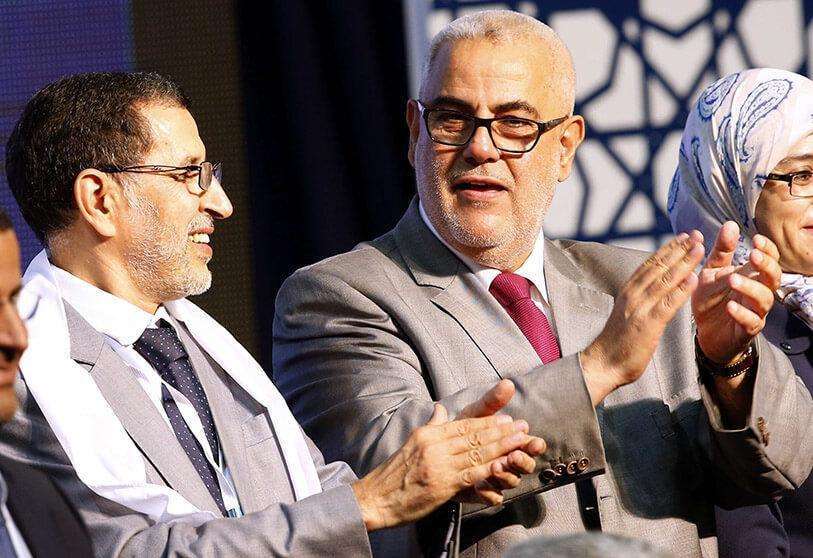
The third: a poor management of the Covid-19 pandemic. For almost a year and a half, the country has been subjected to confinements and harsh restrictions that have ruined thousands of people and families. Thousands of people working in the informal sector, thousands of small businesses, small and medium-sized traders, taxi drivers, cafes, restaurants, wedding halls, leisure centres, gyms, etc., have been ruined without any compensation or financial assistance from the government. The restrictions have affected the PJD voter who has seen his government take severe measures of confinement and restrictions by surprise and without offering any solutions or aid in return. It is true that the Al-Othmani government, at the king's behest, set up the Covid support fund, financed by public and private funds and private donations, which was intended to provide financial assistance to poor families or families whose members had lost their jobs. This aid reached only some of those in need, but far from all needy families.
Fourth: Weak leadership. Al-Othamani has demonstrated a serious lack of communication and political leadership both within the party and the coalition government over the past five years. As head of the PJD he has been unable to unite the party or end the serious internal crisis. As head of the government coalition, he has not been able to unite the six parties that make up the coalition, as evidenced by the electoral laws passed by parliament in which his party was badly affected, and in which Al-Othmani was unable to convince the other parties that make up the government majority to change their positions on the electoral laws. In terms of communication, Al-Othmani disappeared at times that required the appearance of the head of government. In 2018, at the height of the boycott of three well-known commercial brands, he barely made his position known. Morocco has been in a pandemic for almost a year and a half with harsh restrictions and confinements that required the appearance of the head of government, Al-Othmani, instead of recurrently coming out to give explanations, delegated to the Ministries of Interior and Health all the protagonism in the fight against the pandemic.
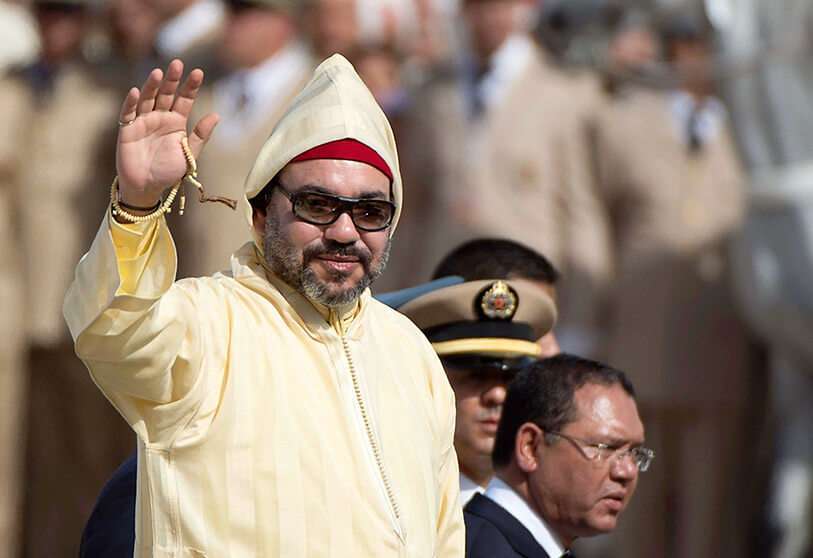
The electoral results show two very clear realities. The first is that the seven leading political parties (National Rally of Independents, the Authenticity and Modernity Party, the Itiqlal Party, the Socialist Union of Popular Forces, the Progress and Socialism Party and the Constitutional Union), despite the slight differences between them, in general have very similar views on cultural and social issues and on the economic model, and all seven are very close to the Palace.
Morocco faces two major challenges: internally, the management of Covid and the implementation of the new economic development model, which will require a very homogenous and strong government. Meanwhile, in foreign policy, the great challenge will be the Western Sahara issue and thus normalisation with Israel, which is essential for the United States to continue to recognise the "Moroccanness of the Sahara". The departure of the PJD from power, which questioned relations with Israel, will allow the issue of normalisation to proceed quietly and without internal opposition.
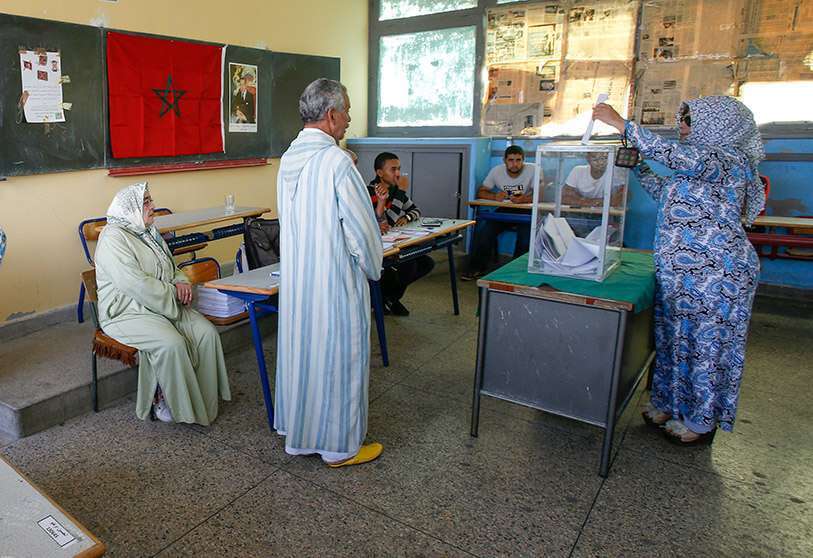
The second reality of the election result is that the PJD has become politically and media irrelevant. Political irrelevance because it has no parliamentary group of its own - it only has 13 deputies - and will not be able to oppose the government in any way. The little time its deputies will have to ask questions and make interventions will reduce the party's media presence.
In this new political stage in Morocco, the PJD will begin a long journey through the desert in which it will have to redefine both its discourse and its political vision in order to win back its electorate on the one hand, and on the other, to once again demonstrate its necessity and usefulness to the Moroccan state.
Mohamed Douief Merras, PhD in Contemporary History.

